
Turkestan: The Heart of Kazakhstan's Spiritual Heritage
Turkestan, a city in southern Kazakhstan, is a treasure trove of history and culture. It is often referred to as the spiritual capital of Kazakhstan. Steeped in centuries-old traditions and home to some of the country's most significant historical landmarks, Turkestan offers a unique glimpse into the past. One of the city's most famous sites is the Mausoleum of Khoja Ahmed Yasawi. This UNESCO World Heritage site is a stunning example of Timurid architecture and attracts thousands of visitors each year. The mausoleum, built in the 14th century, is a pilgrimage site for many Muslims and a symbol of Kazakhstan's rich cultural heritage. Turkestan is not just about historical monuments. The city is also a vibrant hub of local culture and traditions. Visitors can explore bustling bazaars, sample delicious Kazakh cuisine, and experience the warmth and hospitality of the local people. The city's location at the crossroads of ancient trade routes adds to its charm, making it a must-visit destination for history buffs and cultural enthusiasts alike.
Local tips in Turkestan
- Visit the Mausoleum of Khoja Ahmed Yasawi early in the morning to avoid crowds and experience a serene atmosphere.
- Explore the local bazaars for unique souvenirs and a taste of authentic Kazakh cuisine.
- Respect local customs and traditions, especially when visiting religious sites.
- Hire a local guide to learn more about the rich history and significance of Turkestan's landmarks.
- Try to visit during the spring or autumn for the best weather conditions.
Turkestan: The Heart of Kazakhstan's Spiritual Heritage
Turkestan, a city in southern Kazakhstan, is a treasure trove of history and culture. It is often referred to as the spiritual capital of Kazakhstan. Steeped in centuries-old traditions and home to some of the country's most significant historical landmarks, Turkestan offers a unique glimpse into the past. One of the city's most famous sites is the Mausoleum of Khoja Ahmed Yasawi. This UNESCO World Heritage site is a stunning example of Timurid architecture and attracts thousands of visitors each year. The mausoleum, built in the 14th century, is a pilgrimage site for many Muslims and a symbol of Kazakhstan's rich cultural heritage. Turkestan is not just about historical monuments. The city is also a vibrant hub of local culture and traditions. Visitors can explore bustling bazaars, sample delicious Kazakh cuisine, and experience the warmth and hospitality of the local people. The city's location at the crossroads of ancient trade routes adds to its charm, making it a must-visit destination for history buffs and cultural enthusiasts alike.
When is the best time to go to Turkestan?
Iconic landmarks you can’t miss
Mausoleum of Khoja Ahmed Yasawi
Explore the Mausoleum of Khoja Ahmed Yasawi, a stunning UNESCO World Heritage site in Turkistan, and immerse yourself in Kazakhstan's rich cultural heritage.
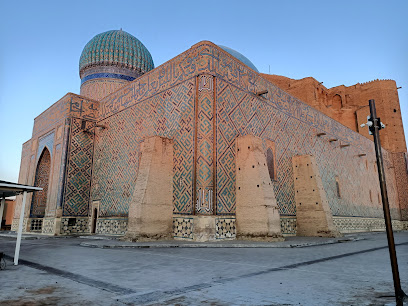
Arystanbab Mausoleum
Discover the Arystanbab Mausoleum, a stunning tribute to Kazakhstan's spiritual heritage and architectural brilliance in Bayaldyr.
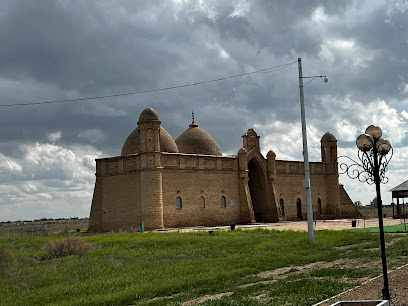
Karavan Saray
Explore the historical Karavan Saray in Turkistan, a remarkable landmark showcasing the architectural beauty and rich heritage of Kazakhstan's Silk Road.
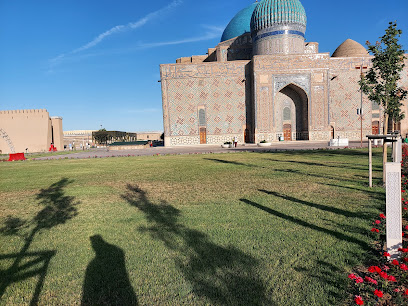
Turkistan City Fortress
Discover the Turkistan City Fortress, a historic architectural marvel in Kazakhstan that showcases the region's rich cultural heritage and history.
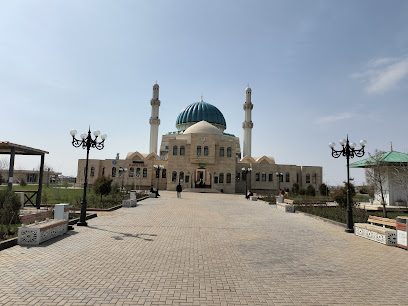
Tamgaly-Tas
Explore Tamgaly-Tas, where ancient petroglyphs and stunning landscapes converge in a captivating journey through Kazakhstan's rich history.
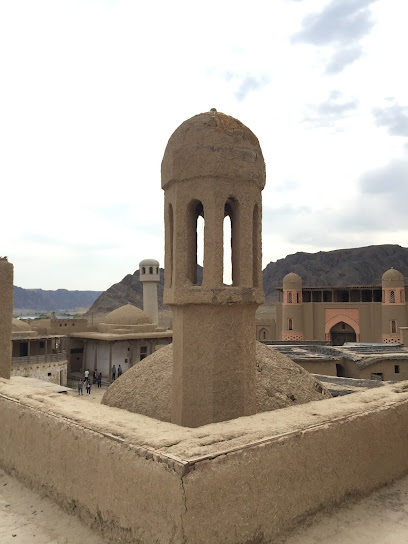
Mausoleum of Gauhar Ana
Explore the Mausoleum of Gauhar Ana in Turkistan, a stunning shrine showcasing exquisite architecture and a rich cultural heritage.
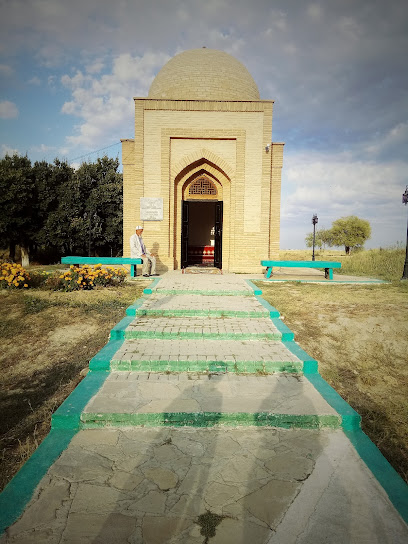
Ukasha Ata
Explore the spiritual and cultural richness of Ukasha Ata, a significant place of worship and a must-visit tourist attraction in Turkistan, Kazakhstan.
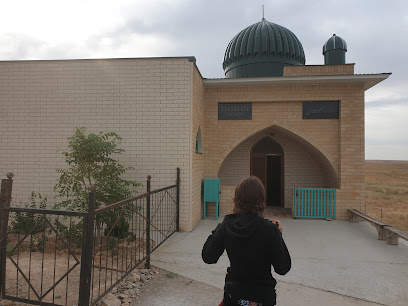
Aziret Sultan Reserve-Museum
Discover the rich history and culture of Kazakhstan at the Aziret Sultan Reserve-Museum in Turkistan, a must-visit for all travelers.
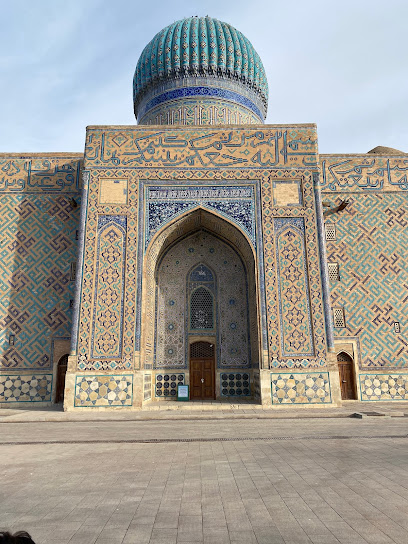
Hammam
Discover the serene beauty of Hammam, a historic bathhouse in Turkistan that embodies the rich cultural heritage of Kazakhstan.
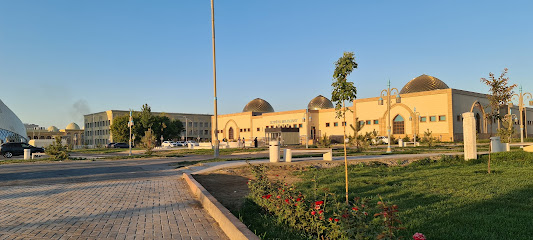
Underground Mosque
Explore the Underground Mosque in Turkistan, a historical landmark showcasing unique architecture and a serene atmosphere perfect for reflection.
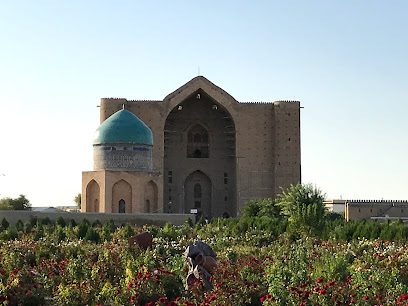
Mausoleum of Rabia Sultan Begum
Discover the beauty and history of the Mausoleum of Rabia Sultan Begum in Turkistan, a stunning monument reflecting Kazakhstan's rich heritage and architectural splendor.
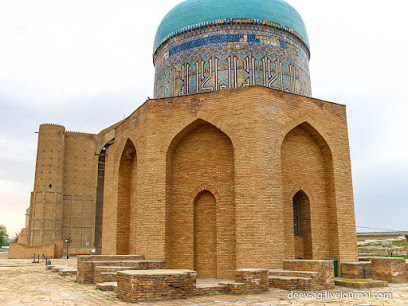
Uly Dala Eli Ortalygy
Discover Kazakhstan's cultural legacy at Uly Dala Eli Ortalygy, a modern heritage museum in Turkistan showcasing the nation’s rich history.
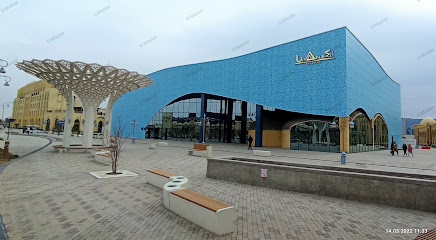
Ancient mosque
Discover the rich history and architectural brilliance of the Ancient Mosque in Turkistan, a must-visit historical landmark in Kazakhstan.
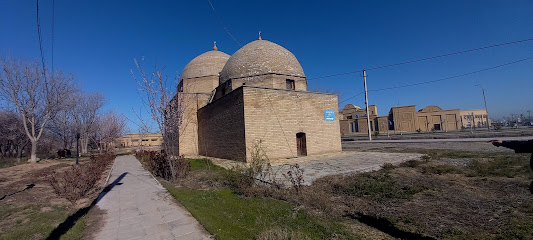
Visit Turkistan
Explore Turkistan: A Historical Jewel in Kazakhstan, Home to Majestic Architecture and Rich Cultural Heritage.
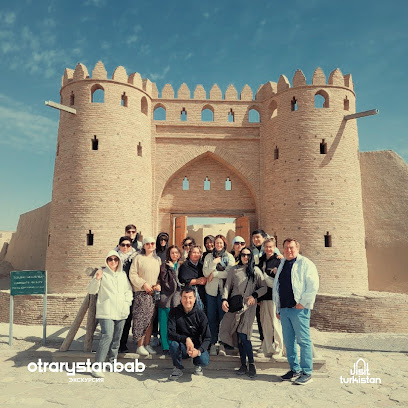
Tsentral'naya Ploshchad' Turkestana
Discover tranquility at Tsentral'naya Ploshchad' Turkestana, a peaceful park in the heart of Turkistan, perfect for relaxation and cultural exploration.
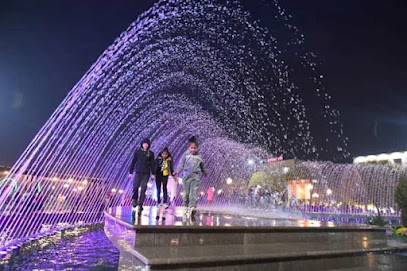
Unmissable attractions to see
Mausoleum of Khoja Ahmed Yasawi
Explore the Mausoleum of Khoja Ahmed Yasawi, a UNESCO World Heritage site, and discover Kazakhstan's rich historical and spiritual heritage.
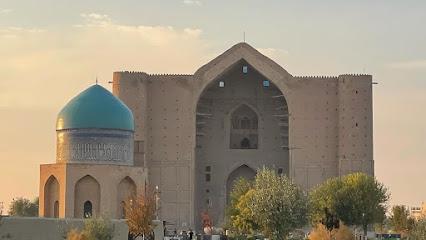
Mausoleum of Khoja Ahmed Yasawi
Explore the breathtaking Mausoleum of Khoja Ahmed Yasawi in Turkistan, a UNESCO World Heritage site showcasing stunning architecture and rich history.
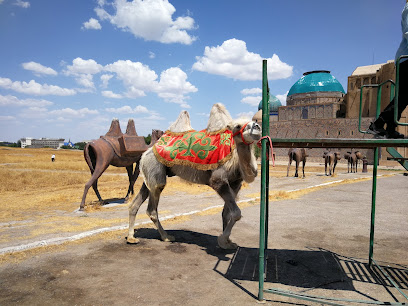
Arystanbab Mausoleum
Explore the Arystanbab Mausoleum in Bayaldyr, a stunning historical site rich in culture and spiritual significance, perfect for any traveler seeking a deeper connection.
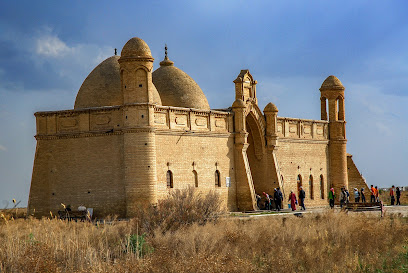
Karavan Saray
Explore the rich history and architectural beauty of Karavan Saray, a historic landmark in Turkistan that echoes the legacy of the Silk Road.
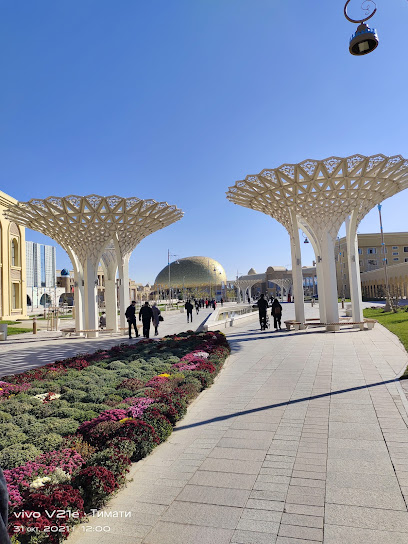
Turkistan City Fortress
Explore the Turkistan City Fortress, a historical gem in Kazakhstan offering stunning views and rich cultural heritage.
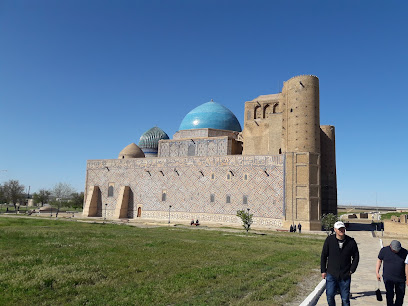
Tamgaly-Tas
Discover the ancient rock carvings of Tamgaly-Tas, a UNESCO World Heritage site in Kazakhstan, where history and nature converge.
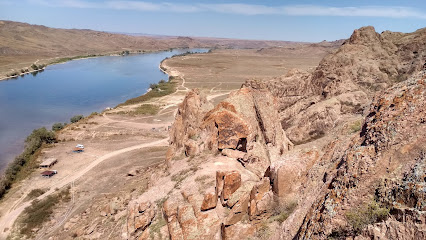
Mausoleum of Gauhar Ana
Discover the Mausoleum of Gauhar Ana, a stunning architectural wonder and spiritual shrine in Turkistan, showcasing rich history and cultural heritage.
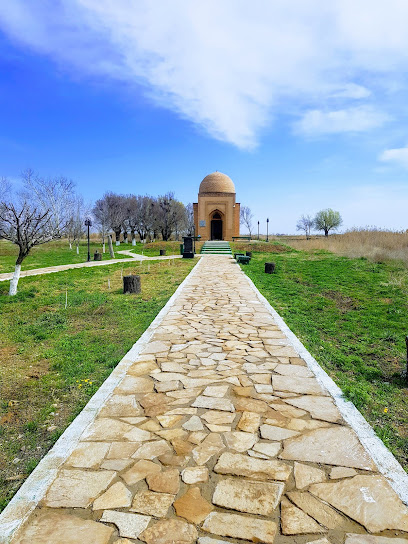
Turkestan Arena
Discover the vibrant energy of Turkestan Arena, the premier stadium in Turkistan, Kazakhstan, hosting thrilling sports and unforgettable concerts.
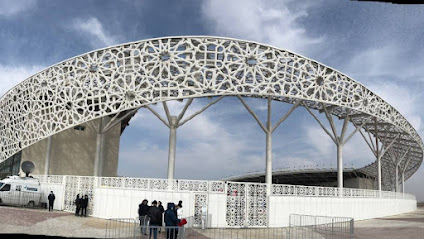
Ukasha Ata
Explore Ukasha Ata in Turkistan, a spiritual sanctuary showcasing stunning architecture and rich cultural heritage in Kazakhstan.
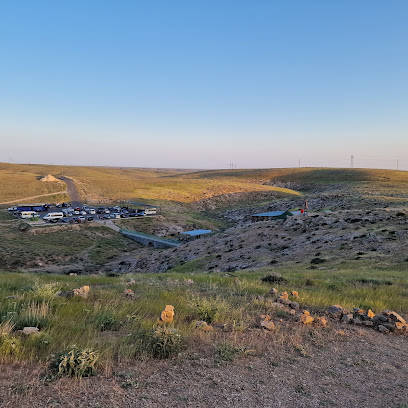
Turkmenbashy Ruhy Mosque
Explore the grandeur of Turkmenbashy Ruhy Mosque, an architectural gem in Ashgabat, showcasing the rich spiritual heritage of Turkmenistan.
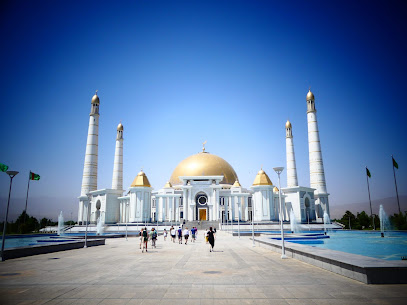
Aziret Sultan Reserve-Museum
Explore the Aziret Sultan Reserve-Museum in Turkistan, a captivating blend of history, culture, and nature in Kazakhstan's heart.
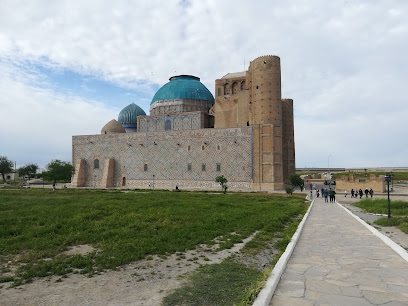
Hammam
Discover the tranquility and historical significance of Hammam, a serene haven in Turkistan, where ancient traditions meet relaxation.
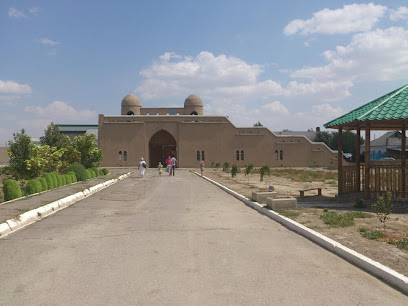
Underground Mosque
Explore the Underground Mosque in Turkistan, a historical landmark showcasing exquisite Islamic architecture and spiritual heritage in a serene setting.
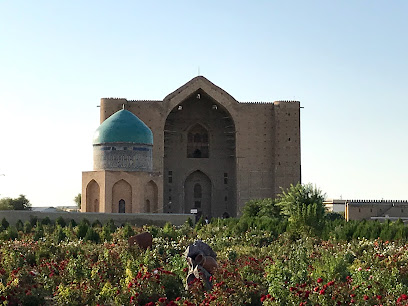
Mausoleum of Rabia Sultan Begum
Explore the exquisite Mausoleum of Rabia Sultan Begum, a stunning 15th-century monument in Turkistan reflecting Kazakhstan's rich cultural heritage.
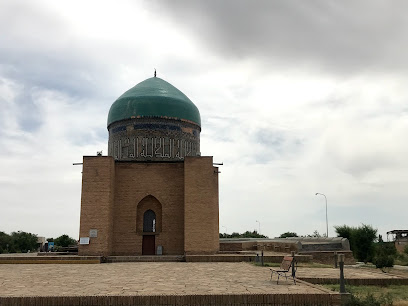
Uly Dala Eli Ortalygy
Explore the rich heritage of Kazakhstan at Uly Dala Eli Ortalygy, a captivating cultural center and museum in Turkistan.
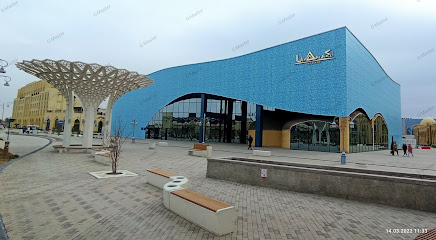
Essential places to dine
Keruyen Saray
Discover authentic Kazakh cuisine at Keruyen Saray in Turkistan - where tradition meets modern dining excellence.
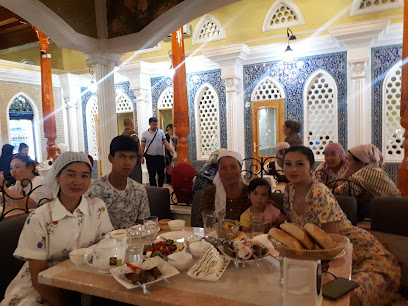
Ұлы Тау Мейрамханасы
Experience authentic Kazakh cuisine at Ұлы Тау Мейрамханасы in Turkistan – where tradition meets taste.
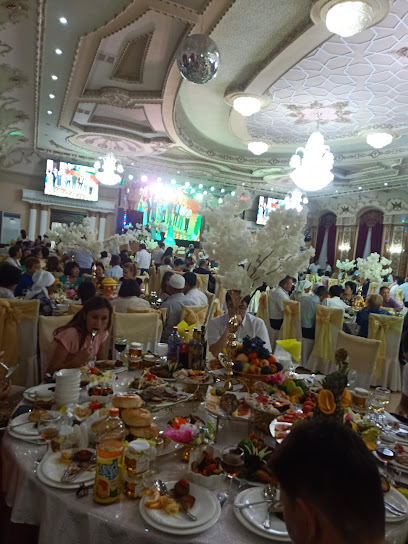
Яссауи
Discover authentic Asian cuisine at Яссауи in Turkistan – where every dish tells a story and flavor reigns supreme.
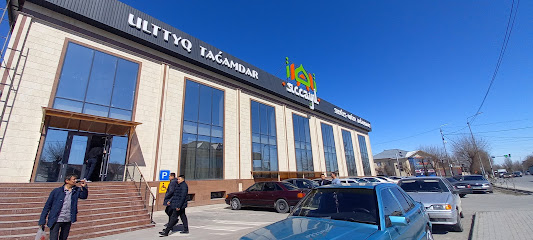
Шыңғыстау Салтанат Сарайы
Discover the flavors of Kazakhstan at Шыңғыстау Салтанат Сарайы – where tradition meets modern dining in Turkistan.
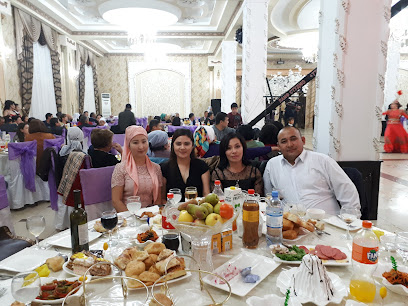
Yerke Toykhana
Discover authentic Kazakh cuisine at Yerke Toykhana in Turkistan – where tradition meets taste in a warm and welcoming setting.
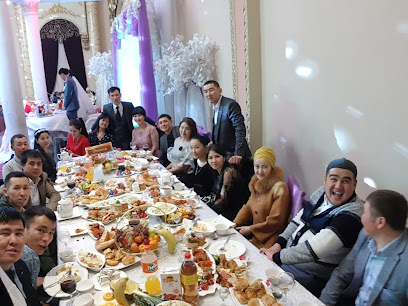
Saryarka Meyramkhanasy
Experience authentic Kazakh cuisine at Saryarka Meyramkhanasy in Turkistan – where tradition meets taste in every delightful dish.
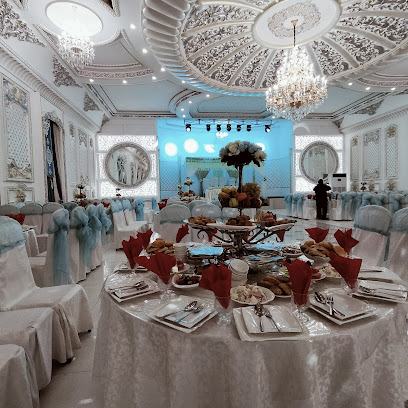
Antalya Cafe Restaurant
Experience the best of Turkish cuisine at Antalya Cafe Restaurant in Turkistan - where flavors come alive and every meal tells a story.
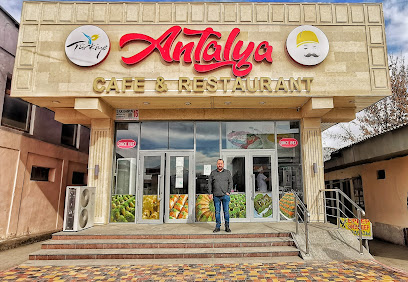
Daily Food
Experience the vibrant culinary scene at Daily Food in Turkistan with delectable local and international dishes in a cozy setting.
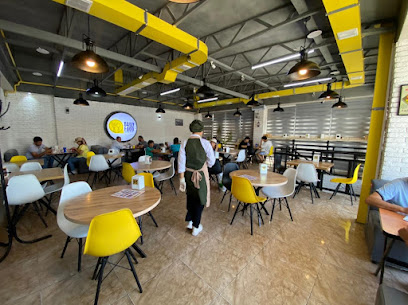
SAT Family RESTAURANT
Experience authentic Kazakh flavors at SAT Family Restaurant in Turkistan – perfect for families and tourists seeking a taste of local cuisine.
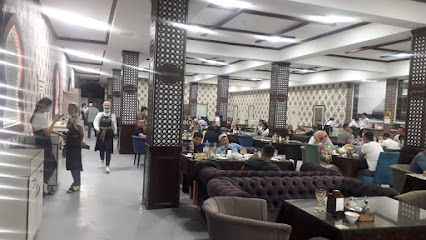
SKY restaurant
Discover culinary excellence at SKY Restaurant in Turkistan—where exquisite flavors meet breathtaking views.
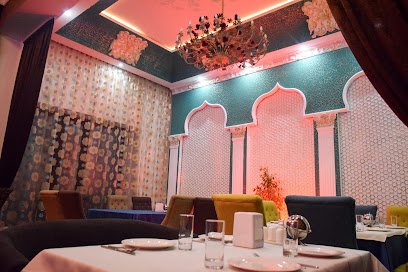
restaurant_zoloto
Discover culinary excellence at Zoloto in Turkistan – where tradition meets luxury in every bite.
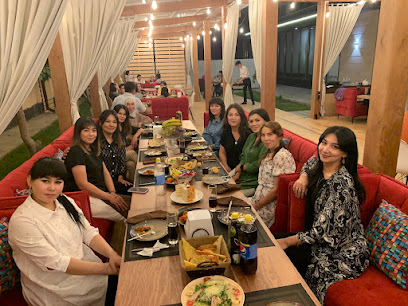
Шаңырақ қымызхана
Savor the flavors of Kazakhstan at Шаңырақ қымызхана, where tradition meets taste in every dish.
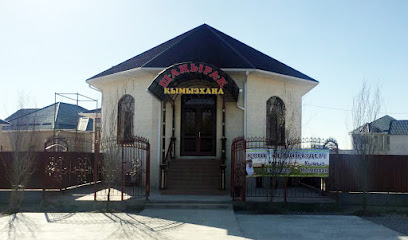
Sandyq Restaurant
Discover authentic Kazakh flavors at Sandyq Restaurant in Turkistan - where tradition meets taste in every dish.
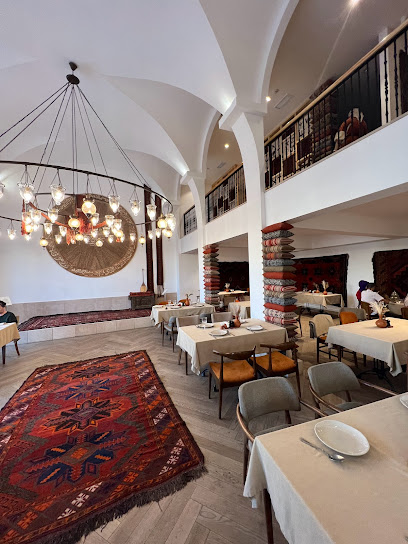
Al-fatih
Discover Al-Fatih in Turkistan: A delightful fusion of local and international flavors in a warm and inviting atmosphere.
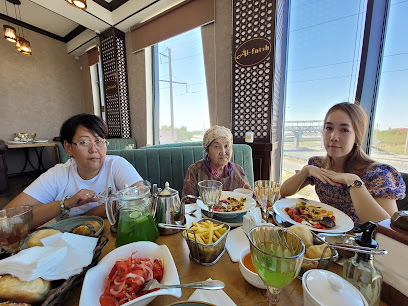
Kaspiyskiy Karavan Saray
Discover delicious barbecue at Kaspiyskiy Karavan Saray in Turkistan – where tradition meets flavor in every bite!
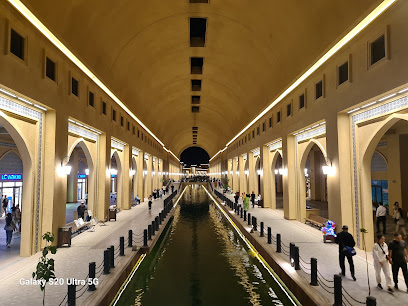
Markets, malls and hidden boutiques
Supermarket Dastarkhan
Explore the vibrant flavors and diverse products at Supermarket Dastarkhan in Turkistan, your gateway to local culture and cuisine.
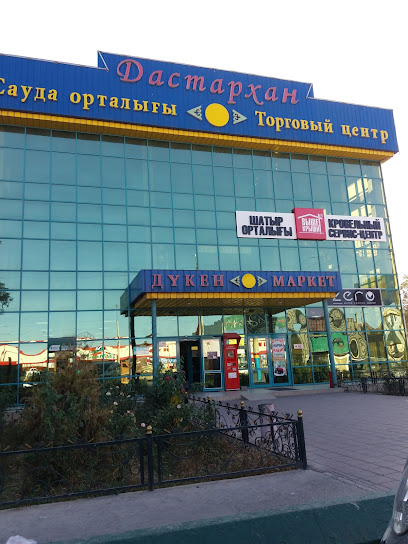
Жантөре
Discover the perfect blend of local culture and modern shopping at Жантөре, Turkistan's vibrant shopping destination.
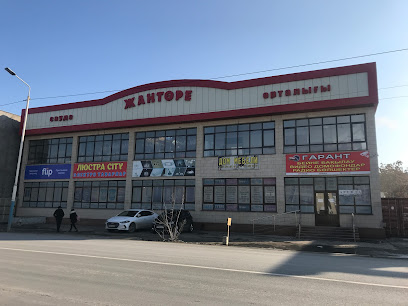
Anime Shop Turkestan
Explore Anime Shop Turkestan – A treasure trove of anime collectibles and gifts in the heart of Turkistan, perfect for fans and souvenir hunters.
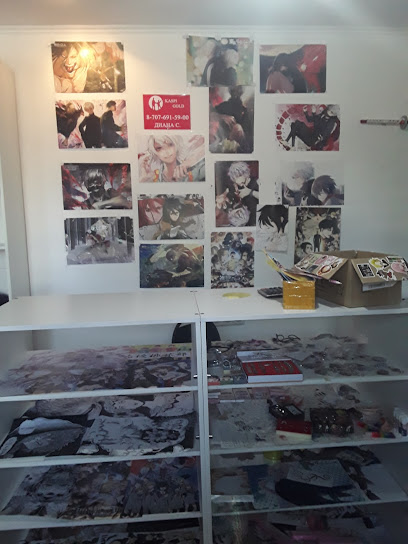
ALLADIN
Explore Alladin in Turkistan for an authentic shopping experience filled with local crafts, unique gifts, and cultural treasures.
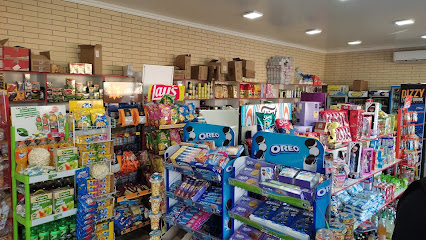
Barno_brand
Discover authentic handmade crafts and local treasures at Barno Brand, a unique shopping destination in Turkistan, Kazakhstan.
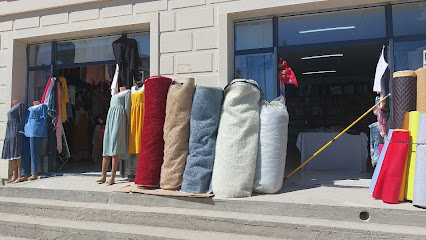
Kunduz
Explore Kunduz in Turkistan: Your gateway to authentic local goods and cultural treasures.
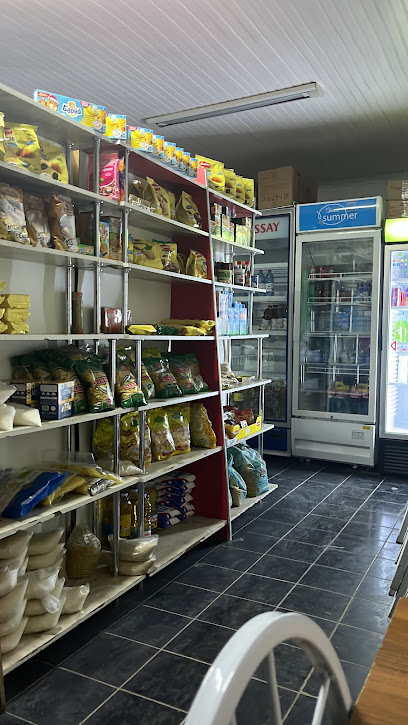
Көркем
Experience the charm of Turkistan at Korkem, where local craftsmanship meets unforgettable shopping.
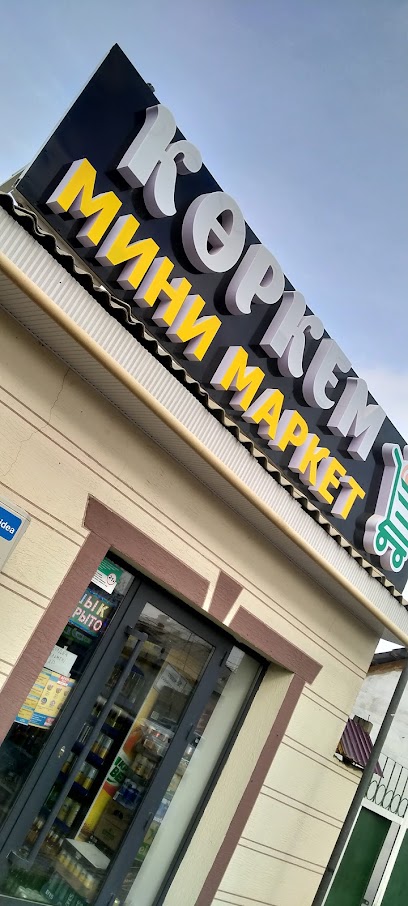
Shokparly
Explore Shokparly in Turkistan for a unique shopping experience that showcases local culture and craftsmanship with every item.
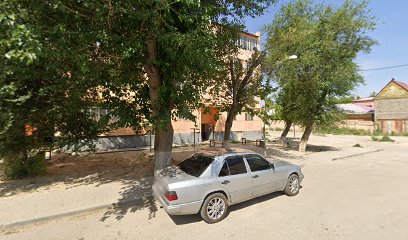
Magazin Musul'manskikh Tovarov
Explore the vibrant gift shop in Turkistan, featuring unique Islamic artifacts and local crafts perfect for souvenirs.
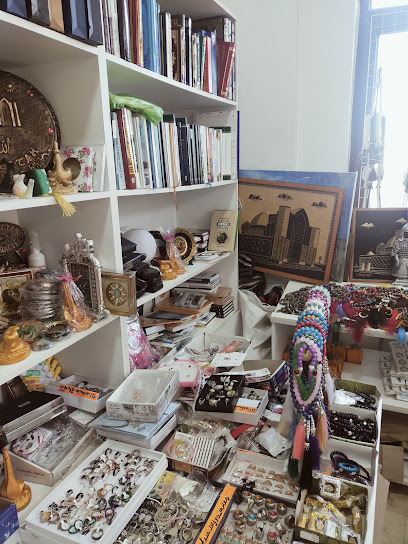
Ayannyn Tarsht Yetetyn Zhery
Discover unique Kazakh handicrafts at Ayannyn Tarsht Yetetyn Zhery in Turkistan, where culture and craftsmanship come together.
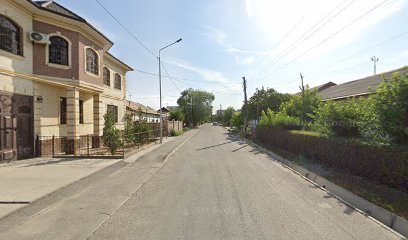
Karavan
Explore the vibrant cultural essence of Turkistan at Karavan, where unique handicrafts and local treasures await every traveler.
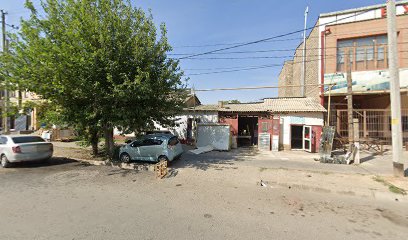
Kenesary
Discover the heart of Turkistan at Kenesary, where shopping meets local culture in a vibrant and welcoming atmosphere.
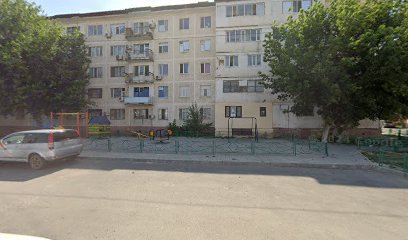
Parfumeshop
Explore the enchanting world of fragrances at Parfumeshop in Turkistan, where luxury meets local artistry in every bottle.
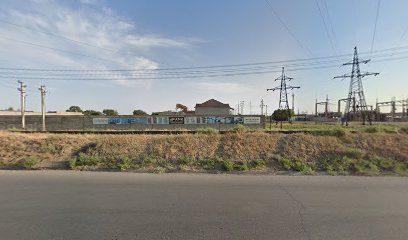
Жібетін жері
Discover Жібетін жері, Turkistan's top shopping mall, where culture meets retail in a vibrant and welcoming atmosphere.
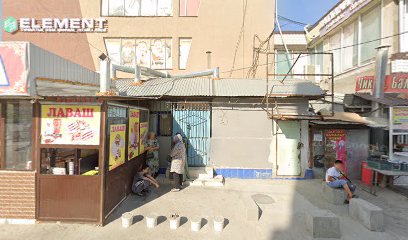
Alpamys
Discover the essence of Kazakh culture through unique handcrafted goods at Alpamys in Turkistan.
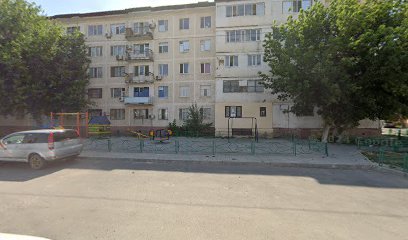
Essential bars & hidden hideouts
Olimp Sport Bar
Experience the thrill of betting and sports at Olimp Sport Bar, Turkistan's vibrant off-track betting destination.
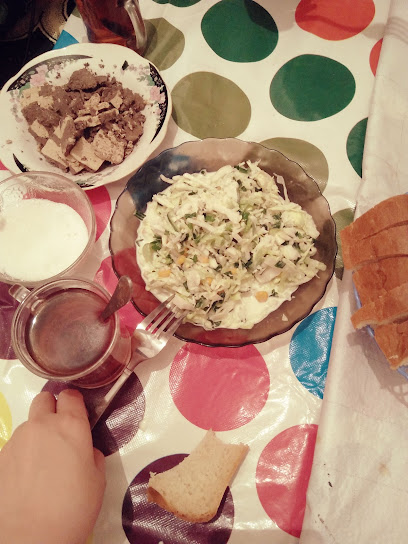
МятаLounge Turkistan
Discover the lively atmosphere and unique cocktails at МятаLounge Turkistan, the perfect spot for relaxation and socializing in the heart of the city.
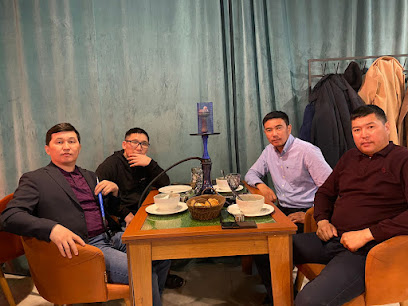
Smoke Bar
Experience the vibrant nightlife of Turkistan at Smoke Bar, where a lively atmosphere meets an eclectic drink selection.
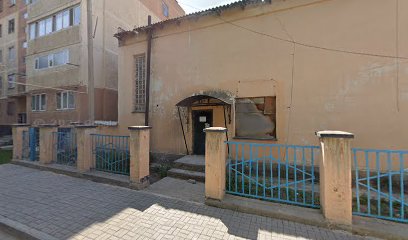
Kal'yan Bar
Discover the vibrant nightlife at Kal'yan Bar in Turkistan, where exceptional cocktails meet a welcoming atmosphere for an unforgettable experience.
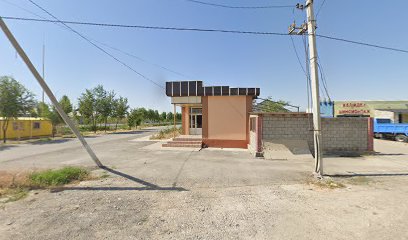
Smoke bar
Experience the vibrant nightlife of Turkistan at Smoke Bar, where exceptional drinks and a lively atmosphere await.
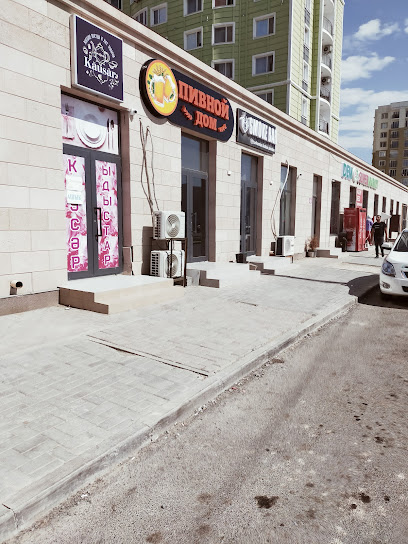
Hugga Bar
Experience the relaxing vibe and cultural richness of Turkistan at Hugga Bar, the premier hookah destination for locals and tourists alike.
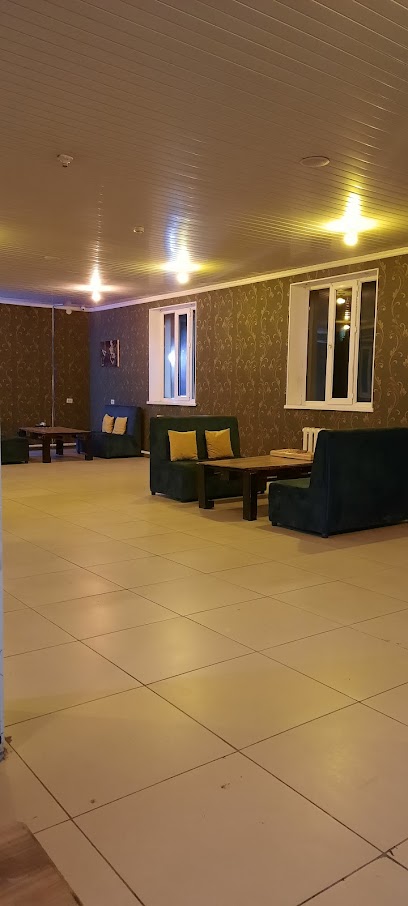
Gold restaurants
Experience the pinnacle of dining at Gold Restaurants in Turkistan, where exquisite cuisine and luxurious ambiance unite for an unforgettable evening.
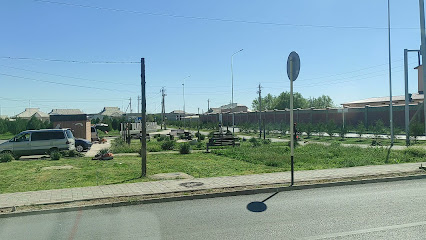
Arbat
Discover the vibrant nightlife at Arbat, a lively bar in Turkistan offering a rich menu of drinks and a welcoming atmosphere for all.
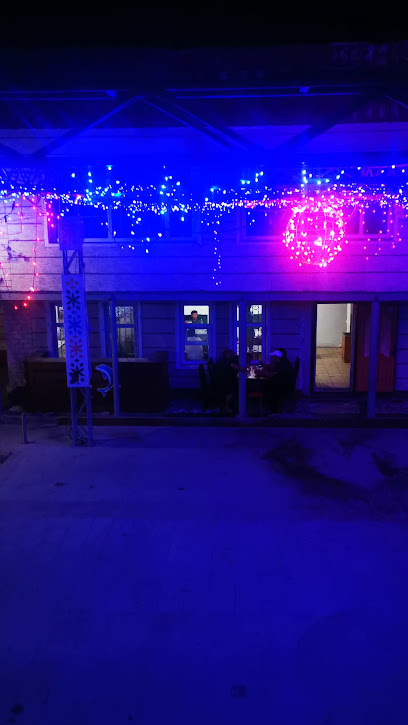
Zhibek Zholy Kafe
Discover the perfect blend of local culture and modern vibes at Zhibek Zholy Kafe in Turkistan, your go-to bar for refreshing drinks and good company.
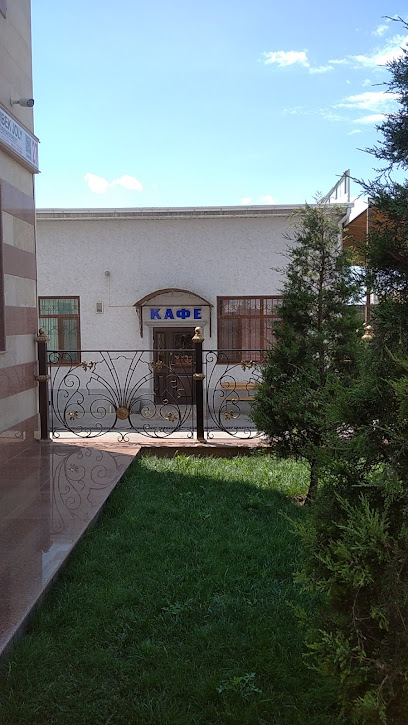
Panorama Bar
Discover the vibrant dining experience at Panorama Bar in Turkistan, where local flavors meet a lively atmosphere for an unforgettable culinary adventure.
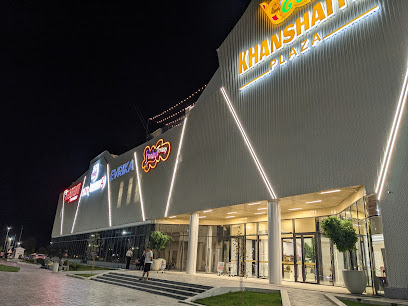
Ақтілек
Discover the cozy ambiance and diverse drink offerings at Ақтілек, a charming bar in Karatobe perfect for tourists looking to relax and enjoy local culture.

Маргонын ішетін жері
Experience the vibrant local culture at Маргонын ішетін жері, a charming bar in Saudakent offering delightful drinks and a welcoming atmosphere.

Altyn Bar
Explore Altyn Bar in Turkistan for authentic Kazakh souvenirs and gifts that embody the spirit of Kazakhstan's rich cultural heritage.
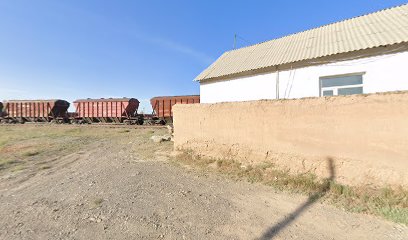
SANSARA LOUNGE BAR
Experience the vibrant nightlife of Turkistan at Sansara Lounge Bar, a perfect blend of local hospitality and modern charm.
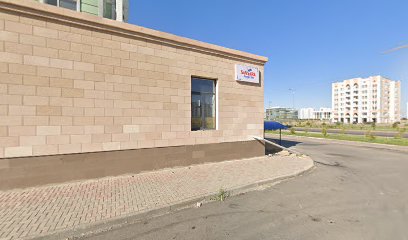
Travel experiences inspired by this city
Explore more travel diariesLocal Phrases
-
- HelloСәлем
[Salem] - GoodbyeҚош келдіңіз
[Qoş keldiniz] - YesИя
[Iya] - NoЖоқ
[Joq] - Please/You're welcomeРахмет
[Rakhmet] - Thank youРахмет сізге
[Rakhmet sizge] - Excuse me/SorryКешіріңіз
[Keshiringiz] - How are you?Қалайсыз ба?
[Qalaisyz ba?] - Fine. And you?Жақсым. Сіздің жағдайыңыз қалай?
[Jaqsym. Sizdiń jağdaiyynyz qalai?] - Do you speak English?Сіз ағылшынша сөйлейсіз бе?
[Siz ağılşınşa söylesiz be?] - I don't understandМен түсінбеймін
[Men tüsinbeymin]
- HelloСәлем
-
- I'd like to see the menu, pleaseМенюді көруге болады маған, рахмет
[Menyudi köruge bolady mağan, rakhmet] - I don't eat meatМен тамақ қазық жемемін
[Men tamaq qazıq jememin] - Cheers!Сау болыңыз!
[Saw bolıńız!] - I would like to pay, pleaseТөлеуге болады маған, рахмет
[Töleuge bolady mağan, rakhmet]
- I'd like to see the menu, pleaseМенюді көруге болады маған, рахмет
-
- Help!Көмек!
[Kömek!] - Go away!Ауырсың!
[Awırsıń!] - Call the Police!Полицияға қоңырау шақырыңыз!
[Politsiıağa qońırau şaqırıńız!] - Call a doctor!Докторға қоңырау шақырыңыз!
[Doktorğa qońırau şaqırıńız!] - I'm lostМен абзалым
[Men abzalım] - I'm illМен аурулым
[Men awrulım]
- Help!Көмек!
-
- I'd like to buy...Сатып алуға болады маған...
[Satıp aluga bolady mağan...] - I'm just lookingТек көріп тұрмын
[Tek körip tурмын] - How much is it?Ол канша болады?
[Ol qansha bolady?] - That's too expensiveОл тым де арзан
[Ol tım de arzan] - Can you lower the price?Бағаны төмендеуге болады ма?
[Bağany tömendeuge bolady ma?]
- I'd like to buy...Сатып алуға болады маған...
-
- What time is it?Қандай уақыт?
[Qanday waqıt?] - It's one o'clockБір жеткізді
[Bir jetkizdi] - Half past (10)Он бесіктен алтыға
[On besikten altığa] - MorningТаң
[Tań] - AfternoonКеш
[Keş] - EveningКеш
[Keş] - YesterdayКеше
[Keşe] - TodayБүгін
[Bügin] - TomorrowЕртең
[Erteñ] - 1Бір
[Bir] - 2Екі
[Eki] - 3Үш
[Üsh] - 4Төрт
[Tört] - 5Бес
[Bes] - 6Алты
[Altı] - 7Жеті
[Jeti] - 8Сегіз
[Segiz] - 9Тоғыз
[Toğız] - 10Он
[On]
- What time is it?Қандай уақыт?
-
- Where's a/the...?... қайда?
[... Qayda?] - What's the address?Мекенжайы қандай?
[Mekenjayı qanday?] - Can you show me (on the map)?Карта/картада көрсетсеңіз бе?
[Karta/kartada körsetsengiz be?] - When's the next (bus)?Келесі (автобус) кезінде кейін
[Kelesi (avtobus) kezinde keyin] - A ticket (to ....)Билет (... -ге)
[Bilet (... -ge)]
- Where's a/the...?... қайда?
History of Turkestan
-
Turkestan, known as Yassy in ancient times, has roots stretching back to the 4th century AD. It was a significant settlement along the Silk Road, serving as a hub of commercial and cultural exchange between the East and West. The city's strategic location made it a melting pot of various cultures and traditions.
-
In the 12th century, Turkestan became the epicenter of Yasawi Sufism, a mystical Islamic belief system. This rise was largely due to the influence of Khoja Ahmed Yasawi, a renowned Sufi poet and philosopher. His spiritual teachings and poetry attracted followers from across Central Asia, establishing Turkestan as a major religious center.
-
Commissioned by Timur (Tamerlane) in the 14th century, the grand Mausoleum of Khoja Ahmed Yasawi is Turkestan's most iconic landmark. This architectural marvel stands as a testament to Timurid architecture, featuring intricate tile work, massive domes, and expansive courtyards. It remains a major pilgrimage site for Muslims in Central Asia.
-
The Timurid Empire, under the leadership of Timur, left a significant mark on Turkestan. Timur's patronage of the arts and architecture led to the city's flourishing as a cultural hub. The period saw the construction of numerous madrasas, caravanserais, and public baths, enhancing the city's status and infrastructure.
-
During the 16th to 18th centuries, Turkestan was a key city within the Kazakh Khanate. It served as the political and spiritual capital, where Kazakh khans were crowned and buried. The city's strategic importance continued to grow, and it became a center of resistance against various invading forces.
-
In the late 19th century, Turkestan fell under Russian control as part of the Russian Empire's expansion into Central Asia. The city saw the introduction of new administrative and infrastructural developments. However, Russian rule also led to significant cultural and social changes, impacting the traditional way of life.
-
Under Soviet rule, Turkestan underwent considerable transformation. The Soviet authorities implemented industrialization and collectivization policies, altering the city's economic landscape. Despite these changes, efforts were made to preserve Turkestan's historical and cultural heritage, including the restoration of the Yasawi Mausoleum.
-
Following Kazakhstan's independence in 1991, Turkestan experienced a cultural and historical revival. The government undertook significant restoration projects to preserve the city's ancient sites and promote its heritage. Turkestan was declared a city of national significance, further boosting tourism and international interest.
-
Today, Turkestan is a vibrant blend of ancient traditions and modern developments. It continues to attract pilgrims, historians, and tourists from around the world. The city's ongoing efforts to balance preservation with progress make it a unique destination, reflecting the rich tapestry of its historical and cultural legacy.
Turkestan Essentials
-
Turkestan is accessible via several routes. The nearest international airport is Shymkent International Airport, approximately 160 kilometers away. From Shymkent, you can take a taxi, a shared minibus (marshrutka), or a train to Turkestan. The journey by road typically takes around 2 to 3 hours. Alternatively, there are direct train services from major Kazakh cities like Almaty and Nur-Sultan, which offer a scenic route through the Kazakh steppe.
-
Turkestan is a relatively small city, and many of its attractions are within walking distance. Local taxis are readily available and inexpensive, making them a convenient option for getting around the city. Public buses and marshrutkas operate within Turkestan and connect with nearby areas. Renting a car is also an option, especially if you plan to explore the surrounding regions at your own pace.
-
The official currency in Kazakhstan is the Kazakhstani Tenge (KZT). Credit cards are accepted in hotels, restaurants, and larger shops, but it is advisable to carry cash for smaller establishments and rural areas. ATMs are available throughout Turkestan, but it is wise to withdraw sufficient cash beforehand if you plan to venture into more remote areas.
-
Turkestan is generally a safe destination for tourists. However, it is always advisable to take standard precautions. Avoid walking alone at night in unfamiliar areas and keep an eye on your belongings in crowded places. While Turkestan does not have specific high-crime areas targeting tourists, staying vigilant and aware of your surroundings is recommended.
-
In case of emergency, dial 112 for immediate assistance. The local police station and medical facilities are available in Turkestan. It is recommended to have travel insurance that covers medical emergencies. For minor health issues, there are pharmacies in the city where you can purchase over-the-counter medications.
-
Fashion: Do dress modestly, especially when visiting religious sites. Avoid wearing revealing clothing. Religion: Do respect local customs and traditions. Always cover your head when entering mosques and other religious sites. Public Transport: Do be respectful and give up your seat to elderly passengers. Don't eat or drink on public transport. Greetings: Do greet people with a handshake. A slight bow of the head is also a sign of respect. Eating & Drinking: Do try local delicacies and accept food offerings graciously. Don't refuse hospitality, as it is considered impolite.
-
To experience Turkestan like a local, visit the local bazaars where you can buy fresh produce and traditional Kazakh goods. Engage with locals, as they are often friendly and willing to share stories about the city's history and culture. Don't miss visiting the Mausoleum of Khoja Ahmed Yasawi, a UNESCO World Heritage Site. For a unique experience, attend a traditional Kazakh music performance or try horseback riding in the surrounding steppe.
Trending Landmark in Turkestan
-
Mausoleum of Khoja Ahmed Yasawi
-
Arystanbab Mausoleum
-
Karavan Saray
-
Turkistan City Fortress
-
Tamgaly-Tas
-
Mausoleum of Gauhar Ana
-
Ukasha Ata
-
Aziret Sultan Reserve-Museum
-
Hammam
-
Underground Mosque
-
Mausoleum of Rabia Sultan Begum
-
Uly Dala Eli Ortalygy
-
Ancient mosque
-
Visit Turkistan
-
Tsentral'naya Ploshchad' Turkestana
Nearby Cities to Turkestan
-
Things To Do in Shymkent
-
Things To Do in Chirchiq
-
Things To Do in Tashkent
-
Things To Do in Angren
-
Things To Do in Djizak
-
Things To Do in Jizzakh
-
Things To Do in Khujand
-
Things To Do in Namangan
-
Things To Do in Istaravshan
-
Things To Do in Samarkand
-
Things To Do in Panjakent
-
Things To Do in Navoi
-
Things To Do in Andijan
-
Things To Do in Jalal-Abad
-
Things To Do in Shakhrisabz








